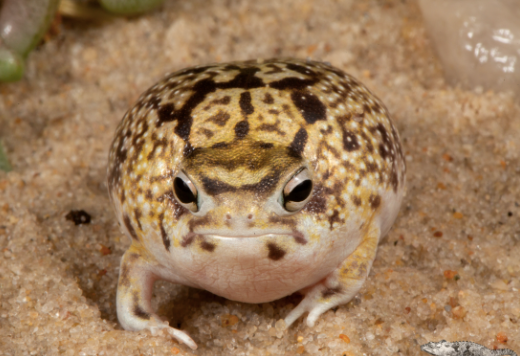Common Health Issues in Reptiles: Symptoms and Solutions
In the detailed world of reptile treatment, recognizing the usual health problems that might affect these unique animals is critical in guaranteeing their wellness. Whether it's grappling with parasitic problems, browsing dehydration issues, or addressing skin conditions that materialize in subtle ways, being attuned to the symptoms and geared up with the understanding of efficient remedies is vital for any type of reptile owner.
Respiratory System Infections
Breathing infections in reptiles can significantly impact their overall health and need punctual attention from seasoned vets. These infections are frequently triggered by fungis, infections, or germs and can materialize with symptoms such as hissing, nasal discharge, open-mouth breathing, and lethargy. In reptiles, respiratory system infections can be specifically challenging to diagnose and deal with because of their distinct anatomy and physiology. Veterinarians typically count on a combination of physical exams, analysis imaging, and laboratory tests to properly determine the underlying root cause of the infection.
Therapy for respiratory infections in reptiles usually entails a mix of encouraging treatment, such as preserving appropriate humidity levels and temperature gradients in the unit, along with targeted medication to deal with the particular pathogen in charge of the infection. It is vital for reptile proprietors to monitor their animals closely for any kind of indicators of breathing distress and look for veterinary treatment at the earliest indicator of a problem. With prompt treatment and appropriate therapy, many reptiles can recover completely from breathing infections and resume normal tasks.

Metabolic Bone Disease
What elements add to the growth of Metabolic Bone Illness in reptiles?
Metabolic Bone Disease (MBD) in reptiles is largely triggered by a lack of appropriate calcium, phosphorus, and vitamin D3 levels in their diet. When reptiles do not get adequate calcium, either with their food or correct UVB exposure for vitamin D3 synthesis, they are at a high danger of developing MBD. Reptiles with diet regimens low in calcium or imbalanced calcium to phosphorus proportions are particularly susceptible. In addition, insufficient direct exposure to UVB light protects against reptiles from synthesizing vitamin D3, which is critical for calcium absorption and bone health and wellness.
Other adding variables to MBD include inappropriate temperature slopes within the reptile's environment, causing lowered metabolic process and damaged calcium absorption. Not enough humidity levels can also influence a reptile's capacity to metabolize calcium successfully. Specific reptile varieties have particular nutritional requirements that, if not met, can increase the chance of establishing MBD. Routine vet check-ups, correct husbandry techniques, and a balanced diet are necessary to prevent Metabolic Bone Disease in reptiles.
Parasitic Invasions
Parasitic problems position a considerable health danger to reptiles, impacting their total wellness and calling for timely veterinary interest. Reptiles can be influenced by numerous parasites, including mites, ticks, internal worms, and protozoa. These bloodsuckers can cause a variety of signs and symptoms, such as weight management, lethargy, skin irritation, diarrhea, and even fatality if left neglected.
One usual bloodsucker found in reptiles is the mite, which can trigger skin inflammation, stress, and anemia. Ticks are an additional exterior bloodsucker that can send conditions and trigger discomfort to the reptile. Internal parasites like worms and protozoa can result in gastrointestinal issues, lack of nutrition, and weaken the reptile's body immune system.
To diagnose a parasitic infestation, a vet may perform fecal tests, skin scrapings, or blood tests. Therapy commonly entails deworming medications, antiparasitic bathrooms, or in severe situations, hospitalization. Preventative measures such as normal vet examinations, proper hygiene, and quarantine treatments for new reptiles can assist lessen the risk of parasitic invasions and make certain the well-being of reptile pets.
Dehydration and Hydration Issues
Dehydration in reptiles can substantially influence their wellness and well-being, requiring prompt intervention and proper hydration management. Reptiles are susceptible to dehydration because of numerous elements such as poor water intake, high environmental temperatures, and certain wellness problems. Signs and symptoms of dehydration in reptiles consist of sunken eyes, lethargy, loss of skin elasticity, and reduced urination. If left unattended, dehydration can cause severe health and wellness concerns and even be deadly to the reptile.
To protect against dehydration, reptile proprietors ought to guarantee that their pet dogs have access to clean water at all times. The water recipe ought to be huge enough for the reptile to saturate in if required, especially for varieties that take in water with their skin. Furthermore, preserving appropriate moisture levels in the reptile's enclosure and giving routine weblink baths can aid stop dehydration.
In cases of dehydration, it is critical to seek vet care promptly. A veterinarian might carry out fluids either by mouth or through injections to rehydrate the reptile. It is necessary to deal with the underlying redirected here source of dehydration to prevent recurrence and guarantee the reptile's general wellness.
Skin Disorders

Verdict

Respiratory infections in reptiles can significantly influence their overall health and wellness and call for prompt attention from knowledgeable vets (rain frog for sale). Preventative steps such as normal vet check-ups, appropriate hygiene, and quarantine treatments for new reptiles can aid reduce the danger of parasitic problems and make certain the wellness this post of reptile pet dogs
If left neglected, dehydration can lead to severe health and wellness problems and also be fatal to the reptile.
Routinely inspecting your reptile for any kind of adjustments in skin appearance, shade, or look can aid in very early discovery and treatment of skin ailments, advertising the overall wellness and well-being of your flaky companion. - rain frog for sale
In verdict, reptiles are prone to numerous wellness issues such as breathing infections, metabolic bone disease, parasitical problems, dehydration, and skin disorders.